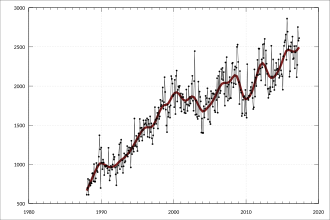The rationale of "shared values" is routinely advanced by our political class to support the notion that we should, as a matter of policy, go along with much of what is happening under the Trump administration at the moment.
Given that, it would be useful to examine just which values we share with Americans, at both the individual and community level. This is difficult, in the first instance, because the diversity that exists across populations in both countries makes it difficult to determine what those individual values are.
Would an African-American from Chicago hold the same values as a white American from the Midwest, or a Latino from Texas? Would a hipster from urban Melbourne hold the same set of values as a wheat farmer from Merredin, or a Murri from Dajarra?
The answer, of course, is that individual comparisons and assumptions simply do not hold, so we will have to look at institutional and political values.
AI will tell you that Australian values respect mateship, and the notion of a "fair go', whereas Americans value individual achievement, free will, and economic success. The institutional outcomes of these factors are universal health programmes, strong social security and welfare structures in Australia, and private insurance and a relatively scelorotic welfare system in the USA.
It describes an Australian laid back attitude to leadership, and a lack of deference to authority, whereas Americans respect authoritative leaders and those in positions of power. These values feed consensus (not weak) politicians in Australia, and authoritarian leadership in the USA. The current situation mirrors that.
It says Australians have a more relaxed approach to the work-life balance, and focus more on enjoying life than making money, but Americans value career advancement and are tolerant of long working hours.
The cliche of the tall poppy syndrome is cited in Australia, but Americans are painted as admiring "superstars" and those who are very successful.
And when it comes to class structure, Americans are described as categorising people by status, whereas Australia has a relatively low degree of class structure.
Frankly, I believe that there is confusion generated by the fact that we share a common language and there are strong parallels in our national history narrative, as we are post colonial societies which began as British settlements. These commonalities mask or hide significant differences.
These differences were demonstrated starkly to me when I served beside Americans in Vietnam fifty five years ago. I vividly remember situations where the hierarchical culture of many American military units got in the way of getting the job done. As Australians, we often exploited this culture when we were scrounging for materials. It was very easy to use rank as a wedge to get what we wanted.
The attitude towards race demonstrated by the Americans was in strong contrast to ours. We saw indigenous diggers as of equal status. The Americans didn't, and this was sometimes a source of tension when we fraternised with African-American soldiers when on leave.
I remember being pulled aside by a well-meaning GI in a nightclub in Saigon, and being told "You don't want to associate with those motherfuckers". He was referring to a group of black Southerners who were great and generous company.I saw these same attitudes, especially to race and status, when I visited the USA in 2018. Nothing has changed in half a century.
We need something more solid than that, given what is at stake.






No comments:
Post a Comment